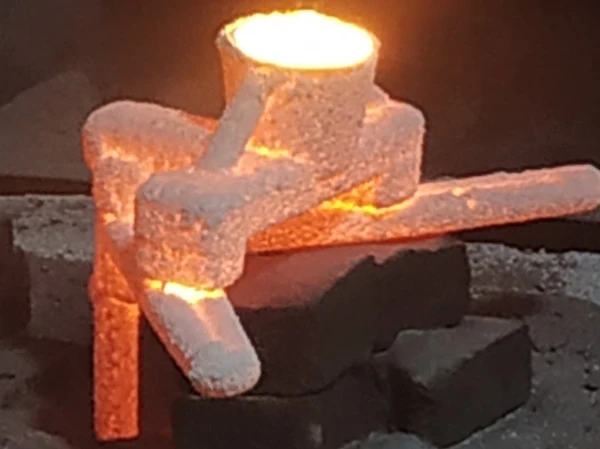Mobile:+86-311-808-126-83
Email:info@ydcastings.com
English
submersible motor impeller
The Submersible Motor Impeller A Vital Component in Fluid Dynamics
In the realm of fluid mechanics, the choice of equipment plays a pivotal role in ensuring efficiency and effectiveness in various applications. Among these, the submersible motor impeller stands out as a critical component in the design and functionality of submersible pumps. These pumps, which are wholly submerged in the fluid they are designed to pump, rely heavily on the impeller's performance to achieve optimal fluid movement.
Understanding Submersible Motors and Impellers
Submersible motors are electric motors specifically constructed to operate while submerged in a liquid, typically water. They are often used in irrigation, drainage, and sewage applications, as well as in oil extraction and aquaculture. The impeller, a rotating component of the pump, generates the necessary pressure and flow to transport fluids from one location to another. The relationship between the impeller and the motor is engineered to maximize efficiency, to withstand harsh environmental conditions, and to minimize wear and tear.
Design and Functionality
The design of a submersible motor impeller is crucial for its operation
. Impellers can vary significantly based on the application; they may be designed to move large volumes of water with minimal energy inputs, or they may be configured to handle solids-laden fluids. Common types of impellers include radial, mixed flow, and axial designs, each serving different pumping needs.1. Radial Impellers These are designed to push the fluid outwards from the center, creating high-pressure streams. They are ideal for applications requiring significant lift.
2. Mixed Flow Impellers Combining characteristics of both radial and axial designs, mixed flow impellers are versatile and can handle varying flow rates while maintaining good efficiency.
3. Axial Impellers These move the fluid in a parallel direction to the pump shaft, making them suitable for high-flow applications with low lift requirements.
submersible motor impeller

The choice of impeller type directly influences the performance and longevity of the pump. Factors such as the diameter, number of blades, and the material of construction contribute significantly to the operational efficiency of the impeller.
Materials and Durability
Submersible motor impellers must endure challenging conditions, including variations in temperature, corrosive fluids, and the potential for abrasion from solid particles. Therefore, the choice of materials is vital. Common materials include stainless steel, bronze, and polymer composites, each offering specific benefits in terms of corrosion resistance and strength. Advanced composite materials are increasingly being used for their lighter weight and enhanced performance metrics.
Performance Optimization
To achieve optimal performance, manufacturers often utilize computational fluid dynamics (CFD) simulations during the design process. These simulations help predict how changes to the impeller design will influence flow patterns, pressure distribution, and overall efficiency. Regular maintenance and monitoring are also essential in real-world applications, as wear can significantly impact performance.
Applications Across Industries
Submersible motor impellers find application across various sectors. In agriculture, they play a crucial role in irrigation systems, facilitating the transfer of water from underground sources to crops. In municipal services, they are integral to sewage and wastewater management systems, ensuring the safe disposal and treatment of waste. Furthermore, in the oil and gas industry, robust impeller designs are used to pump fluids from deep wells, showcasing the versatility and importance of these components.
Conclusion
The submersible motor impeller is not just a simple mechanical device; it is a sophisticated component that influences the efficiency and effectiveness of pumping systems across a range of industries. As technology continues to evolve, the design and materials used in submersible motor impellers will likely advance as well, leading to improvements in energy efficiency, durability, and operational performance. Understanding the intricacies of this component can help engineers and operators make informed decisions, ultimately enhancing the performance of their fluid handling systems.
-
Materials Used in Manufacturing Cap End Pipe FittingsNewsNov.24,2025
-
Material Properties of CF8M CastingNewsNov.24,2025
-
How to Inspect Pump Cap Ends for DamageNewsNov.21,2025
-
Backward Curved Impeller – Efficient Airflow Solutions for Industry | YD CastingsNewsNov.21,2025
-
Automobile Water Pump - Efficient, Quiet, Durable & ElectricNewsNov.21,2025
-
Impeller for Pumps – High-Efficiency, Durable, OEM-ReadyNewsNov.21,2025











